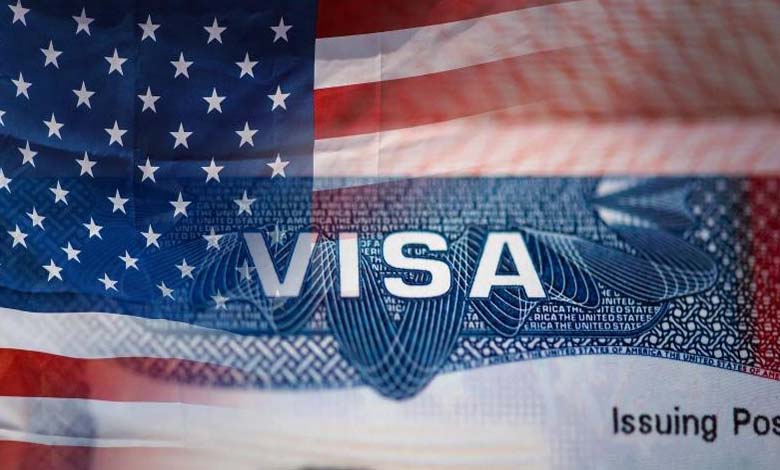U.S. Visa Restrictions Extended to All Palestinians

The U.S. administration has announced it will bar Palestinians from traveling to the United States for medical treatment, university studies, or professional purposes.
According to the New York Times, Washington has suspended nearly all visa approvals for holders of Palestinian passports, extending earlier restrictions that had applied mainly to residents of Gaza and senior officials of the Palestinian Authority, including Mahmoud Abbas.
-
Israeli Foreign Minister from Washington: There will be no Palestinian state
-
Trump to Chair Expanded Meeting on Gaza Amid Low Expectations for a Near Agreement
Citing unnamed officials, the report stated that these restrictions go beyond the Trump administration’s previous policies by blocking Palestinians from entering the U.S. for healthcare, higher education, or business visits.
Meanwhile, protests continue across the U.S., including in Washington, D.C., condemning Israel’s war in Gaza. American university students who expressed solidarity with Palestinians have faced significant pressure, including arrests and expulsions.
Two weeks ago, the State Department had already announced it was halting all visitor visas for individuals coming from Gaza pending a “comprehensive and thorough” review, a move denounced by pro-Palestinian advocacy groups.
-
After Gaza: Questions over the Fate of Al-Mawasi and the Crowded Central Camps
-
Diaries of a Gaza family: waking up hungry and sleeping on broken hope
On Friday, Washington confirmed that Palestinian Authority President Mahmoud Abbas would be denied entry to New York for the United Nations General Assembly this September. About 80 other Palestinian officials would also be affected by the cancellation of their visas.
Abbas, who had planned to attend the annual high-level session, was also scheduled to join a summit at which several countries, including France, the United Kingdom, Australia, and Canada, were expected to formally recognize the State of Palestine. His office denounced the decision as a violation of the 1947 “Headquarters Agreement,” which obliges the U.S. to grant access to foreign diplomats attending UN meetings in New York, except in cases involving national security or foreign policy concerns.
-
“I can’t walk anymore”: When journalists, the hungry, and medics collapse in Gaza
-
Gaza Truce: U.S. Positive Signal, Israeli Flexibility and a U.N. Alarm
Palestinian presidential spokesperson Nabil Abu Rudeineh urged Washington to reverse what he called a breach of international law. Several European foreign ministers voiced criticism as well, including France’s Jean-Noël Barrot and Ireland’s Simon Harris, who said the EU should protest in the strongest possible terms. Spanish Prime Minister Pedro Sánchez described the move as “unjust,” insisting that Palestine must be allowed to present its case before the UN.
The U.S. justified the restrictions by reiterating longstanding accusations that the Palestinian Authority and the Palestine Liberation Organization have failed to renounce violence while seeking unilateral recognition of statehood. Palestinian officials rejected these claims, pointing out that decades of U.S.-brokered talks have failed to end the Israeli occupation or establish an independent Palestinian state.
-
Gaza Ceasefire Deal: Internal and Regional Pressures Shape the Limits of the Agreement
-
2 Million Palestinians in 15% of Gaza’s Area… 36,000 People per Square Kilometer
The State Department clarified that the restrictions would not apply to the Palestinian mission to the UN, whose officials reside in New York permanently. UN spokesperson Stéphane Dujarric said the organization would address the visa issue directly with Washington.
This is not the first time the U.S. has denied a visa to a Palestinian leader: in 1988, Yasser Arafat was barred entry, forcing the UN General Assembly to convene in Geneva instead of New York so he could deliver his address.
-
Palestinian political analyst: Gaza’s humanitarian situation is catastrophic and international pressure falls short of addressing the crisis
-
Demolition policy and large-scale displacement: what is happening in Tulkarem?
The current decision comes amid heightened tensions, as several of Washington’s Western allies prepare to formally recognize a Palestinian state in response to Israel’s devastating war in Gaza and continued settlement expansion in the West Bank.
Today, 147 of the UN’s 193 member states officially recognize Palestine, which holds permanent observer status at the organization, similar to the Vatican. The U.S., however, maintains that Palestinian statehood can only be achieved through direct negotiations with Israel.












